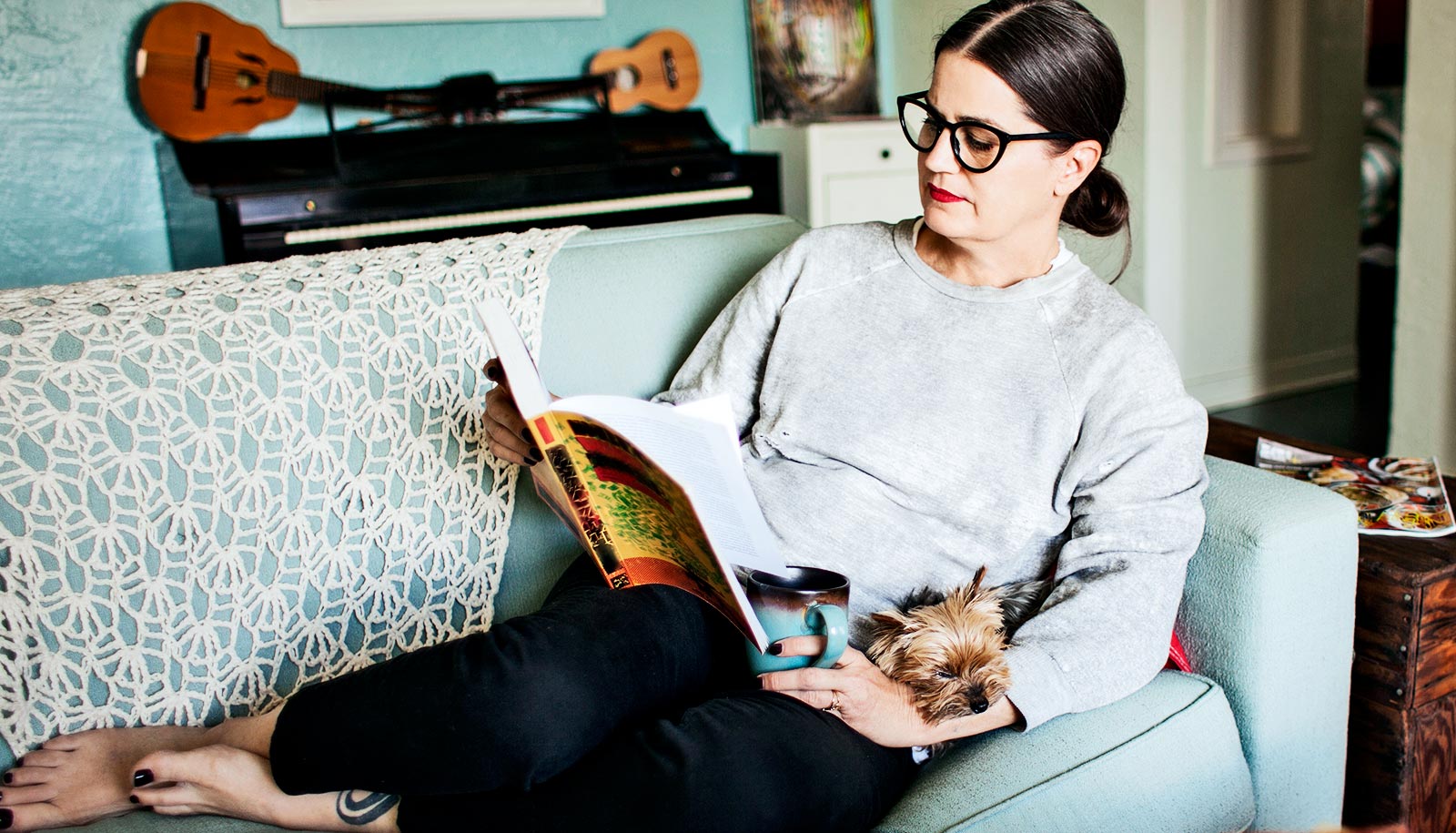Nontraditional social strategies are just as effective at fulfilling critical social needs as are family connections, romantic relationships, or strong social support systems, new research indicates.
The findings are particularly relevant during the COVID-19 pandemic as people struggle with direct social connections stunted by social distancing and other necessary precautions, according to coauthor Shira Gabriel, a professor of psychology at the University at Buffalo.
“I don’t think people realize that these nontraditional connections are as beneficial as we found in our research,” says Gabriel. “Don’t feel guilty, because we found that these strategies are fine as long as they work for you.”
“What’s important is not how you’re filling the social fuel tank, but that your social fuel tank is getting filled.”
And these nontraditional strategies all predict positive outcomes, according to coauthor Elaine Paravati, a graduate of the University at Buffalo.
“People can feel connected through all sorts of means. We found that more traditional strategies, like spending time with a friend in person, doesn’t necessarily work better for people than nontraditional strategies, like listening to a favorite musician,” says Paravati.
“In fact, using a combination of both of these types of strategies predicted the best outcomes, so it might be especially helpful to have a variety of things you do in your life to help you feel connected to others.”
For over a decade, Gabriel has studied in her lab the importance of nontraditional social strategies. These include everything from getting lost in pulp fiction page-turners to preparing and enjoying comfort foods. Volumes of research also exist on the importance of traditional social strategies, like interpersonal relationships or group memberships.
But no one had ever empirically combined the traditional and nontraditional for comparative purposes to simultaneously test their relative effectiveness.
The results represent the first evidence that not only reinforces the utility of nontraditional social strategies, but also suggests that doing something like binge watching a favorite television drama is as useful as other traditional means of fulfillment.
The research team, which also included graduate student Esha Naidu, recruited 173 participants who were asked questions about their well-being and their social connections. Their responses provided a measurement inspired by previous research, which the team calls the “social fuel tank.”
“There’s a basic need for social connections, just as we have a basic need for food,” says Gabriel. “The longer you go without those sorts of connections, the lower the fuel tank, and that’s when people start to get anxious, nervous, or depressed, because they lack needed resources.
“What’s important is not how you’re filling the social fuel tank, but that your social fuel tank is getting filled.”
Participants filled their tanks as many as 17 different ways (with a median of seven), using a variety of strategies in their lives to fill their social needs, with a majority of participants reporting both traditional and nontraditional social strategies.
“This is especially relevant now, with social distancing guidelines changing the ways people connect with others,” says Paravati. “We can utilize these nontraditional strategies to help us feel connected, fulfilled, and find more meaning in our lives, even as we safely practice social distancing.”
At a time when pandemic-related restrictions have motivated questions about how to be social, Gabriel notes how these findings differ from cultural perceptions regarding the unwritten rules for what’s appropriate for creating a sense of belonging.
“We live in a society where people are questioned if they’re not in a romantic relationship, if they decide not to have children, or they don’t like attending parties,” says Gabriel. “There are implicit messages that these people are doing something wrong. That can be detrimental to them.
“The message we want to give to people, and that our data suggest, is that that’s just not true.”
And even before Gabriel had data to support these conclusions, her previous research had raised the very questions addressed in the current study.
“People had assumed these nontraditional connections weren’t valuable. In fact, we used to call them ‘social surrogates,’ as if they were a surrogate for a real social connection,” says Gabriel. “But after researching these connections for so long, we never found evidence that they weren’t valuable. Nothing suggested that people using nontraditional strategies were lonelier, or less happy, less socially skilled, or feeling any less fulfilled.
“These aren’t surrogates for real social connections; these are real ways of feeling connected that are very important to people.”
“Symbolic social bonds don’t function as a second-place option to traditional means.They are an effective way of reaping positive mental benefits,” says Paravati. “It’s not about only using them when you can’t access ‘better’ options—these options are helpful to use any time.”
So listen to music, follow the gossip column, pet the dog, or play a game. “We have evidence that as long as you feel like you’re fulfilling your belongingness needs, it doesn’t really matter how you’re doing it,” says Paravati.
The research appears in the journal Self and Identity.
Source: University at Buffalo



